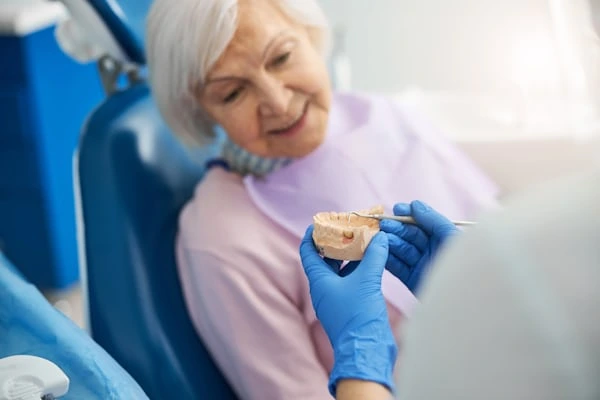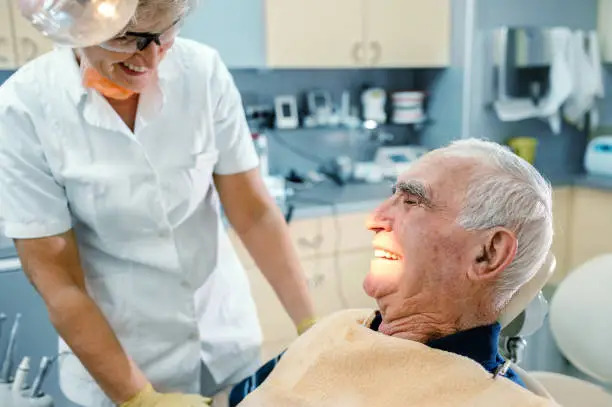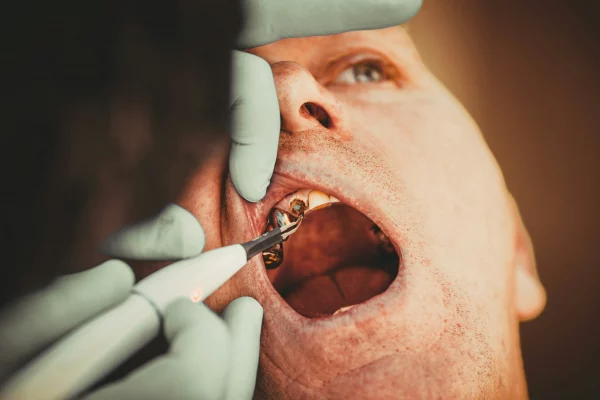Dental implants represent a significant advancement in restorative dentistry for older adults, extending benefits well beyond mere aesthetics. For many seniors, the loss of natural teeth can compromise not only their ability to enjoy foods like crisp apples but also their confidence in social situations due to concerns over unstable dentures. Modern implant technology has evolved to address the specific clinical considerations of aging patients, such as diminished bone density and the presence of chronic health conditions.
Importantly, implants are adaptable; with careful evaluation and planning, even individuals with pre-existing bone loss or complex medical histories may still be viable candidates. The investment required for dental implants is considerable, yet when compared to the ongoing maintenance and complications associated with traditional dentures including progressive bone shrinkage, the long-term value becomes evident.
Clinics with experience in geriatric dental care are best positioned to guide patients through the process, taking into account their lifestyle and health needs. Furthermore, implants help preserve jawbone volume, support facial structure, and improve articulation, factors that collectively enhance quality of life. Ultimately, for many older adults, dental implants signify not merely a functional restoration, but a meaningful return to everyday comfort and social engagement.
Dental Implants for Seniors: Why They’re a Smart Choice

Dental implants represent a significant advancement in restorative dentistry. Instead of merely resting atop the gums, as traditional dentures do, implants involve the surgical insertion of titanium posts directly into the jawbone. This technique encourages the process known as osseointegration, wherein the bone integrates with the titanium, resulting in a stable and enduring foundation.
Following sufficient healing, a custom-fabricated crown, bridge, or even a full arch can be affixed to the implants. This approach not only restores the patient’s ability to chew and speak effectively but also closely replicates the appearance and feel of natural teeth. Unlike removable dentures, implant-supported restorations remain securely in place, eliminating concerns about slippage or the need for nightly removal.
For older adults in particular, dental implants can substantially enhance both daily comfort and overall quality of life, providing a reliable and aesthetically pleasing solution for missing teeth.
Bone Density and Implant Success in Older Adults
Many older adults express concern that diminished bone density may preclude them from receiving dental implants. In truth, chronological age alone is seldom a determining factor in the success of such procedures. Clinicians utilize advanced imaging, such as 3-D scans, to assess the quality and quantity of bone. When areas of bone thinning are identified, various methods including the use of shorter implants, strategic angulation, or minor bone grafting are available to address these challenges effectively. While the healing process may extend somewhat longer compared to younger patients, the overall success rate for healthy seniors remains impressively high, typically exceeding 90%.
Benefits Over Traditional Dentures for Seniors
Dental implants offer significant advantages over traditional dentures, especially for seniors seeking long-term comfort and confidence. Unlike dentures that can shift or require messy adhesive creams, implants anchor prosthetic teeth securely in place, eliminating wobble during meals or conversation. Because implant restorations don’t cover the roof of the mouth, they preserve your ability to fully taste food, making every bite more enjoyable. They also stimulate the jawbone, preventing the bone loss that often causes facial sagging with age. Speech becomes clearer too, as the stable fit ensures words remain crisp whether you’re chatting casually or speaking in public. Most importantly, implants restore a sense of freedom—many seniors describe feeling revitalized once they can laugh, smile, and dine without hesitation.
How Implants Improve Eating and Speaking Ability
Implant-supported prosthetic teeth significantly restore masticatory force, closely resembling the functional capacity of natural molars. This improvement enables older adults to consume a broader range of foods, including tougher items such as steak, raw vegetables, and crusty bread, thereby enhancing dietary variety and nutritional intake. In addition, stable dental implants support clearer articulation of sounds like “s,” “f,” and “th,” which depend on precise tooth positioning. The result is improved speech consistency, with minimal risk of slippage or disruption during conversation.
Dental Implants vs. Dentures in Senior Care

When examining options for tooth replacement among seniors, dental implants and dentures present distinctly different experiences. Dentures tend to be more affordable initially and can often be provided relatively quickly, which is advantageous for individuals facing significant tooth loss. That said, dentures may feel cumbersome, require daily removal for cleaning, and can shift during eating or speaking, potentially impacting quality of life.
On the other hand, dental implants, while entailing a higher upfront cost and a more involved process, offer a stable and permanent solution. They closely mimic the appearance and function of natural teeth, contributing to the preservation of bone density and facial structure, and eliminating the discomfort associated with adhesives or shifting prosthetics. For seniors prioritizing long-term oral health, nutritional improvement, and enhanced self-confidence, dental implants are increasingly regarded as the superior option.
Longevity and Maintenance Comparison
Dental implants integrate directly with the jawbone, essentially becoming a permanent part of the oral structure. With diligent oral hygiene, these implants frequently last two decades or longer—and in some cases, they may endure for a lifetime. In contrast, dentures present a different set of considerations. Because gum tissues change shape over time, dentures typically require periodic adjustment or replacement every five to eight years. The cumulative expense of these repeat relines and replacements can, over the long term, rival or even exceed the initial investment in dental implants.
Comfort and Lifestyle Considerations
Dentures predominantly depend on suction and the patient’s ability to control them with oral musculature, both of which can become unreliable due to xerostomia or diminished dexterity. In contrast, dental implants closely mimic the sensation and function of natural teeth, reducing or eliminating the occurrence of gum soreness often associated with removable prostheses. For older adults who remain active, whether traveling, engaging socially, or caring for grandchildren, a fixed implant solution offers significant advantages in terms of convenience and maintenance, supporting a more independent and comfortable lifestyle.
Hygiene and Daily Care Differences
Implant crowns are maintained much like natural teeth; routine brushing and flossing are sufficient for daily care. For more thorough cleaning, an interdental brush or water flosser can be used to remove debris around the posts. In contrast, dentures require a distinct regimen: they must be soaked overnight, typically with cleansing tablets, and handled carefully to prevent warping or breakage. The maintenance for dentures is notably more involved compared to implant crowns.
Choosing the Right Implant Provider for Seniors

When selecting an implant provider for older adults, you can’t overlook the unique challenges that come with age, things like diminished bone density, chronic health conditions, or increased sensitivity to dental procedures. It’s crucial to seek out a dentist or oral surgeon with genuine experience in geriatric care and advanced training in implantology, not just someone who treats older patients as an afterthought.
Prioritize providers who understand the complexities of aging, such as managing osteoporosis or diabetes, and are attentive to the need for gentler, more individualized care. Clinics offering comprehensive services—on-site imaging, sedation tailored to seniors, and coordination with your primary care physician—can streamline the process and reduce unnecessary stress.
Additionally, ask pointed questions about the provider’s success rates with older adults, and don’t hesitate to review feedback from senior patients. A reputable practitioner will take the time to address your concerns, clarify your options, and ensure you’re informed and comfortable at every stage, minimizing surprises and enhancing your overall care experience.
What to Look for in a Senior‑Friendly Dental Clinic
Patients managing chronic age-related conditions like diabetes, osteoporosis, or cardiovascular disease often face additional challenges in post-procedural healing. It’s essential to select a dental team adept at collaborating with medical professionals to coordinate comprehensive care. The integration of advanced diagnostic technologies, such as cone-beam CT scanners and surgical guides, offers significant benefits. These tools enhance procedural accuracy while minimizing chair time, thereby improving overall patient outcomes.
For individuals with anxiety or mobility limitations, the availability of oral or intravenous sedation can significantly improve comfort and procedural tolerance. Finally, a barrier-free facility is crucial. Features such as wide doorways, non-slip flooring, and attentive staff promote safety and accessibility for patients who use assistive devices like canes or walkers.
Why Graham Park Dental Is Trusted by Older Patients
Graham Park Dental tailors implant care to the 60‑plus community. On‑site digital scans reduce appointments, while platelet‑rich fibrin (PRF) accelerates healing naturally—valuable for patients on multiple prescriptions. Their team collaborates with cardiologists and endocrinologists, ensuring implant surgery meshes smoothly with existing health plans.
Frequently Asked Questions (FAQs)
1. Are dental implants safe for people over 65 or 70?
Yes, dental implants are often a safe and effective option for seniors. Chronological age matters less than overall health, bone density, and a stable medical history. In fact, research shows that older adults typically experience implant success rates comparable to younger patients. What’s crucial is a thorough medical evaluation to ensure that conditions such as hypertension, diabetes, or osteoporosis are well-managed before surgery. Your dental team will collaborate with your primary care physician or specialist if needed to create a safe, tailored plan. With proper care, seniors can enjoy long-term function, improved nutrition, and renewed confidence with dental implants.
2. Do seniors heal slower after dental implant surgery?
Healing from dental implants may take slightly longer for seniors due to reduced blood flow and slower cell regeneration that naturally occur with age. However, advances in implant dentistry—such as guided placement technology, platelet-rich fibrin (PRF) membranes, and minimally invasive surgical techniques—help reduce trauma and speed up recovery. These innovations support bone integration while minimizing discomfort and swelling. Seniors who follow post-operative instructions carefully, including eating nutrient-rich meals, staying hydrated, and getting adequate rest, typically heal smoothly. Regular follow-up appointments also allow the dental team to monitor progress and make timely adjustments if needed. With the right care, seniors can experience successful outcomes and a comfortable recovery process.
3. How long do dental implants last for older adults?
With consistent brushing, flossing, and routine dental cleanings, dental implants can function reliably for 20 years or more. The titanium posts themselves are highly durable and biocompatible, with very low failure rates when properly maintained. Most long-term concerns involve the crown or bridge attached to the implant, which may need replacement after 10–15 years due to normal wear—similar to other dental restorations. Regular checkups help catch minor issues early, ensuring the implant site remains healthy and stable. Good oral hygiene and avoiding habits like smoking or teeth grinding also play a key role in extending the life of the implant. For many seniors, implants provide a lasting, low-maintenance solution that supports both health and quality of life.
4. Are there special implant options for seniors with bone loss?
Even when the upper or lower jaw lacks bone height, modern implant techniques make tooth replacement possible for many seniors. Options like short, wide implants or angled All‑on‑4 placement can bypass thin areas and anchor securely in stronger bone. In more advanced cases, zygomatic implants are used to anchor into the dense cheekbone, avoiding the need for major grafting. For those anticipating future implants, socket-preservation grafts placed at the time of tooth extraction can help maintain bone volume and prevent shrinkage. These minimally invasive approaches reduce healing time and increase success rates in patients with bone loss. A skilled provider will assess your anatomy and recommend the safest, most effective method for long-term stability.
5. How do I know if my elderly parent is a good candidate?
The first step toward dental implants is scheduling a comprehensive evaluation that includes 3‑D imaging. This allows the dentist to assess bone volume, nerve placement, and overall oral structure in detail. During the visit, they’ll also review your medical history, current medications, and daily habits that may affect healing. If systemic conditions like diabetes or hypertension are well-managed, and the jawbone can support a post—either naturally or with the help of bone grafting—implants are usually a safe and viable option. Your provider will explain all findings clearly and help you understand what to expect before, during, and after the procedure. This thorough approach ensures a customized treatment plan designed for long-term success and comfort.
Imagine biting into a crisp apple or sharing a steak dinner without denture cream worries. Dental implants return seniors to those simple pleasures. If you’re ready to explore a lasting, comfortable alternative to removable teeth, schedule an implant consultation with Graham Park Dental today. Our age‑aware team will assess bone health, discuss costs transparently, and design a plan that fits your lifestyle and budget. Secure chewing power, clear speech, and renewed confidence—one appointment can start the journey.


